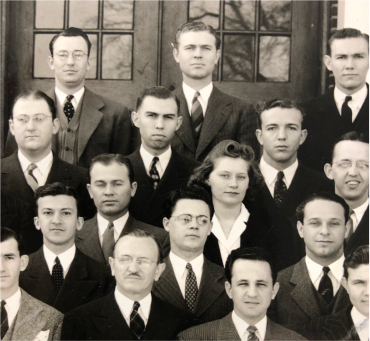Spanish-American philosopher George Santayana is often quoted for his warning: “Those who cannot remember the past are condemned to repeat it.” In his book The Life of Reason, Santayana stressed that progress depends on retention—that without memory, humanity would
remain in a state of perpetual infancy.
But perhaps history is more than remembering events. Its relevance lies in reminding us of the fragile nature of civilization, how quickly fear and hatred can rise, and why progress requires courage: the courage to speak truth to power and to stand up for what is right.
Learning from the Past
Margaret Chanin was not a philosopher, but her life embodied Santayana’s idea of progress through retentiveness. At 24, after losing both arms in a boating accident, she never forgot what had happened to her. Yet she refused to let that trauma define the rest of her life.
Instead, Margaret rebuilt her future with meaning and purpose. She graduated from dental school, taught preventive dentistry for more than two decades, raised a family, and became a national advocate for people with disabilities. Her story was a living lesson: progress means remembering the past, but also rising above it.
A Voice for Disability Rights
Through her work, Margaret stressed why it was essential to protect and expand the rights of people with disabilities. She spoke openly about the need for equal access to public transportation, workplaces, and facilities—rights that today may feel obvious, but were far from
guaranteed in her lifetime.
Her advocacy was a reminder of a larger truth: if justice and opportunity are not protected for everyone, they can be taken away from anyone.
Margaret’s Relevance Today
More than 20 years after her passing, Margaret’s story is as timely as ever. In Mother of Courage, her son Philip Chanin reflects:
“Great strides have been made in the march toward equal rights and opportunity. Yet too many of our brothers and sisters are shunned and despised because they are ‘different.’
My mother was not a fixer. But she was a doer. Faced at a young age with a most extreme experience of trauma and loss, she could easily have given up. Instead, buoyed by her abiding faith and the love of those around her, she confronted her limitations and overcame them. In always reaching forth, Mother was an inspiration not only to those who knew and loved her, but also to hundreds if not thousands of others who read about her from afar.”
A Lasting Gift
As Philip writes, global problems can feel overwhelming. But Margaret believed that every individual has the power to right wrongs and improve the lives of others. Her legacy is not only about overcoming personal adversity—it is about leading by example and proving that change
starts with ordinary people choosing to act.
A quarter of a century after her death, the Life of Margaret remains a story of courage.
